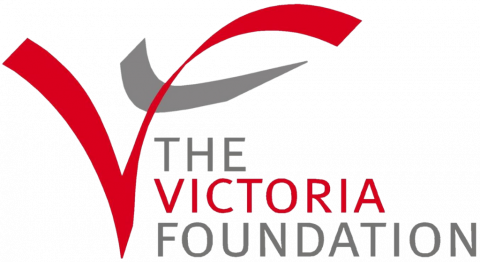
Hair loss is one of the most common and underrated symptoms in menopause. In this article, Dr Archana Rao, Consultant Dermatologist at New Victoria Hospital, debunks some of the most common myths she has encountered in her clinics over the past two decades regarding hair loss during menopause, offering answers grounded in both scientific research and her extensive experience.
Having specialised in perimenopausal and menopausal skin and hair, Dr Rao sees women day in and day out mystified with the hair loss that is baring their scalp and clogging their shower drains. Most women in their 50s will know that ageing and all the changes that go with it are hard enough; hair loss can be the last straw that simply defeats their confidence.
What may seem trivial to some is often monumental to the people who are undergoing it.
The link between menopause and hair loss mostly comes down to hormonal changes. As women go through perimenopause and menopause, their oestrogen levels drop. The role of oestrogen is to help keep hair in its growth or the anagen phase for longer. When these levels fall, the growth phase shortens, leading to more hair shedding. At the same time, there is a relative increase in androgen activity due to the sharp decline in oestrogen, which can affect hair follicles, especially in areas like the crown and temples, if one is genetically predisposed. While overall androgen production actually decreases with age, the change in the oestrogen-to-androgen ratio can impact hair growth patterns.
Age also reduces collagen production, which affects skin elasticity and can impact the scalp’s ability to support healthy hair. These hormonal and age-related changes, along with decreased protein production necessary for hair structure, all contribute to the thinning and hair loss many women face during menopause.
Myth 1: ‘I need to invest in the best shampoo that will stop hair loss’
Hair loss in perimenopause and menopause is often a result of various factors, but using an expensive shampoo is least likely to solve the problem. A shampoo should keep the scalp clean and heathy without affecting the pH dramatically. It is akin to manure for plant growth - the soil should be healthy for the plant to grow well. Similarly, a healthy scalp that is free from scales allows for optimum hair growth but is unlikely to be the only reason behind hair fall.
Myth 2: ‘If I wash my hair less often, it will fall less’
Hair will fall regardless, as its lifecycle is limited, but washing the scalp regularly to prevent a build-up of sebum and scales is essential. If you skip washing your hair all week, the amount of hair fallen on the day you wash it will be excessive. The hair that has to shed will shed anyway.
People often query the ideal number of times one should wash their hair. However, there is no ‘one size fits all’ in this. Everyone is unique and so is their skin, scalp microbiome and hair composition. Washing often enough so that the scalp does not become greasy is ideal and is approximately thrice weekly for most women, but can vary from once a week to almost daily for some.
Myth 3: ‘Drinking collagen will help stop my hair loss’
Hair supplements can be a mind-boggling minefield, and there is little empirical evidence on which will realistically benefit hair fall. Nutrition is vital for hair growth and in perimenopause and menopause – even more so. However, drinking volumes of collagen or taking heaps of supplements, armed with the knowledge of social media, is unlikely to be the answer.
The benefits of collagen, and whether it actually helps hair loss at all, remains a grey area even within the medical fraternity, with not enough medical evidence backing it.
The three main constituents for hair are as straightforward as proteins that form its building blocks, along with iron and vitamin D. Nothing should substitute a healthy balanced diet with a good source of protein and five-a-day of fruits and vegetables, with at least two of these being leafy greens to provide iron. Vitamin D supplementation in winter is vital for most to keep the immune system functioning optimally, and as a result, support hair growth.
Myth 4: ‘The best person to advise me on this will be the person with the most followers on Instagram’
The best person to deal with this is a Dermatologist with a special interest in hair disorders. Period. Everyone’s genetics, lifestyle and hair composition are different. When you suffer from hair loss which is ongoing and does not correct itself, it is best to have this looked at by a suitable professional.
Although genetics play a crucial role in hair ageing, several other factors can contribute to hair loss from seasonal shedding, to stress, thyroid dysfunctions, low iron, poor diet, and autoimmune causes. The latter is increasing in prevalence and needs a specialist to examine the scalp and prescribe the suited immunoregulatory medication. Most women are alarmed and horrified at being given the diagnosis of an autoimmune hair disorder, but at the end of the consultation feel better equipped to understand and remedy the problem.
Myth 5: ‘My hair margins seems to be retracting. I guess it is a part of ageing and nothing can be done about it’
Wrong! What we are seeing in recent times is an epidemic of hair loss affecting perimenopausal and menopausal women, wherein an autoimmune reaction attacks the hair follicle inhibiting its growth. Some patients complain of soreness and discomfort of the scalp, whilst many others remain largely unaffected – except, of course, for the heartbreak that comes with passively observing a receding hairline.
Frontal fibrosing alopecia, as it has been coined, has only been described in the last two decades, and research continues unabated to try and identify the causes and cures for it. Genetics and hormones definitely play a role but, given that this is an occurrence that has been described only in the last two decades, research is directed at identifying plausible environmental agents. 9 out of 10 times, stress is the trigger that sets the autoimmune cascade into play in a predisposed individual.
The bad news is that frontal fibrosing alopecia is a particularly strong autoimmune reaction that results in scarring and destruction of the hair follicle. The good news is that there are various treatments that can be used to halt its progress and thereby salvage the remainder of hair follicles.
Menopause is not insignificant. We know that now. Hair loss is not either. Anything that troubles you, causes anxiety, or erodes your confidence needs to be dealt with pragmatically rather than intuitively. It is easy to get lost in a world with miracle solutions, but do not hesitate to seek medical advice for a condition that is potentially treatable with sound medical backing.
Hair today is not necessarily gone tomorrow! It is important to debunk common myths that can spread easily on social media, trust reliable medical information platforms, and seek professional help when symptoms begin to affect the quality of your life.
To book your Dermatology appointment, please call on 020 8949 9020 or complete our online form.













